What to Watch in 2019: Wilson Center Experts Weigh In














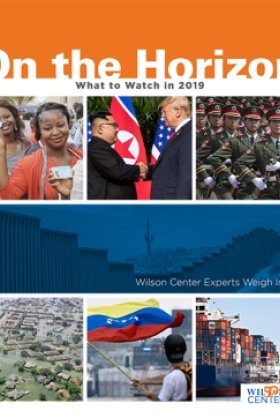
Decoding a World of Change for Washington
In a world marked by complexity, volatility, and a din of competing agendas, the Wilson Center is the nation’s indispensable resource for decoding today’s most pressing foreign policy challenges. Leveraging its global expertise and perspective, award-winning scholarship and analysis, and a fiercely nonpartisan spirit, the Center informs actionable ideas for policymakers across the political spectrum.
Chartered by Congress 50 years ago as a living memorial to President Wilson, the Center’s work today spans more than a dozen regional and thematic programs to tackle hot-button security issues – from the North Korean nuclear threat to the implications of a risen China and from North American trade to global cyberwarfare. The Center also serves a vital role in linking Washington to the world, hosting U.S. lawmakers and leaders from around globe, while continually expanding its unparalleled network of some 5,000 former fellows.
The next generation of policy leaders will also trace its roots to the Wilson Center, as the Foreign Policy Fellowship Program and Cybersecurity and AI Labs connect select Congressional staff with top scholars and practitioners to help prepare them for current and future challenges.
Jane Harman
Director, President, and CEO
Frederic V. Malek
Chairman of the Board of Trustees
Authors


Senior Foreign Service Officer, U.S. Department of State




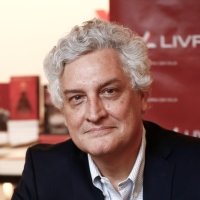
Dean, Getulio Vargas Foundation Law School (FGV Direito SP)

Executive Director, Future Borders Coalition
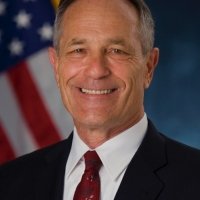
Assistant Secretary for International Affairs and Chief Diplomatic Officer for the US Department of Homeland Security (DHS) Office of Policy, and Vice President of INTERPOL for the Americas Region
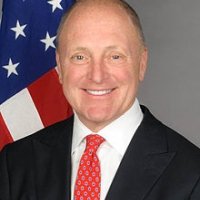
CEO, Power Sustainable; Former Ambassador of the United States to Canada

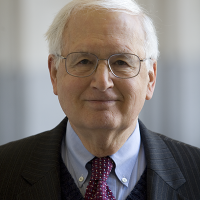
Founding Director Emeritus, Kissinger Institute on China and the United States

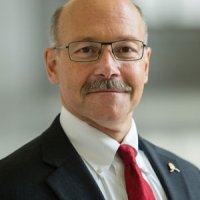
US Ambassador-at-Large for Arctic Affairs; Former Chair, US Arctic Research Commission
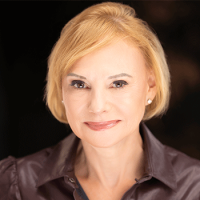
Author, Threat Multiplier: Climate, Military Leadership & the Fight for Global Security.


Journalist and former Pyongyang Bureau Chief, Associated Press




Former Career Ambassador to Afghanistan, Argentina, and Mexico; Distinguished Diplomat in Residence, School of International Service, American University
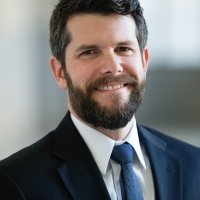


Former Washington Post Middle East Correspondent



Adjunct Senior Fellow, Transatlantic Security Council, Center for a New American Security; former Deputy Assistant Secretary of Defense for Europe and NATO

President and CEO, US Russia Foundation





Senior Faculty Fellow at Georgetown’s Center for Security and Emerging Technology (CSET) Assistant Teaching Professor at Georgetown University’s School of Foreign Service Former Postdoctoral fellow at the Belfer Center's Cyber Security Project, John F. Kennedy School Government, Harvard University

Indo-Pacific Program
The Indo-Pacific Program promotes policy debate and intellectual discussions on US interests in the Asia-Pacific as well as political, economic, security, and social issues relating to the world’s most populous and economically dynamic region. Read more


Africa Program
The Africa Program works to address the most critical issues facing Africa and US-Africa relations, build mutually beneficial US-Africa relations, and enhance knowledge and understanding about Africa in the United States. The Program achieves its mission through in-depth research and analyses, public discussion, working groups, and briefings that bring together policymakers, practitioners, and subject matter experts to analyze and offer practical options for tackling key challenges in Africa and in US-Africa relations. Read more


Brazil Institute
The Brazil Institute—the only country-specific policy institution focused on Brazil in Washington—aims to deepen understanding of Brazil’s complex landscape and strengthen relations between Brazilian and US institutions across all sectors. Read more


Canada Institute
The mission of the Wilson Center's Canada Institute is to raise the level of knowledge of Canada in the United States, particularly within the Washington, DC policy community. Research projects, initiatives, podcasts, and publications cover contemporary Canada, US-Canadian relations, North American political economy, and Canada's global role as it intersects with US national interests. Read more


Kissinger Institute on China and the United States
The Kissinger Institute works to ensure that China policy serves American long-term interests and is founded in understanding of historical and cultural factors in bilateral relations and in accurate assessment of the aspirations of China’s government and people. Read more


Global Women's Leadership Initiative
The Global Women’s Leadership Initiative has hosted the Women in Public Service Project at the Wilson Center since June, 2012. The Women in Public Service Project will accelerate global progress towards women’s equal participation in policy and political leadership to create more dynamic and inclusive institutions that leverage the full potential of the world’s population to change the way global solutions are forged. Read more


Hyundai Motor-Korea Foundation Center for Korean History and Public Policy
The Center for Korean History and Public Policy was established in 2015 with the generous support of the Hyundai Motor Company and the Korea Foundation to provide a coherent, long-term platform for improving historical understanding of Korea and informing the public policy debate on the Korean peninsula in the United States and beyond. Read more


History and Public Policy Program
A leader in making key foreign policy records accessible and fostering informed scholarship, analysis, and discussion on international affairs, past and present. Read more


Latin America Program
The Wilson Center’s prestigious Latin America Program provides non-partisan expertise to a broad community of decision makers in the United States and Latin America on critical policy issues facing the Hemisphere. The Program provides insightful and actionable research for policymakers, private sector leaders, journalists, and public intellectuals in the United States and Latin America. To bridge the gap between scholarship and policy action, it fosters new inquiry, sponsors high-level public and private meetings among multiple stakeholders, and explores policy options to improve outcomes for citizens throughout the Americas. Drawing on the Wilson Center’s strength as the nation’s key non-partisan policy forum, the Program serves as a trusted source of analysis and a vital point of contact between the worlds of scholarship and action. Read more


Mexico Institute
The Mexico Institute seeks to improve understanding, communication, and cooperation between Mexico and the United States by promoting original research, encouraging public discussion, and proposing policy options for enhancing the bilateral relationship. A binational Advisory Board, chaired by Luis Téllez and Earl Anthony Wayne, oversees the work of the Mexico Institute. Read more


Middle East Program
The Wilson Center’s Middle East Program serves as a crucial resource for the policymaking community and beyond, providing analyses and research that helps inform US foreign policymaking, stimulates public debate, and expands knowledge about issues in the wider Middle East and North Africa (MENA) region. Read more


Polar Institute
Since its inception in 2017, the Polar Institute has become a premier forum for discussion and policy analysis of Arctic and Antarctic issues, and is known in Washington, DC and elsewhere as the Arctic Public Square. The Institute holistically studies the central policy issues facing these regions—with an emphasis on Arctic governance, climate change, economic development, scientific research, security, and Indigenous communities—and communicates trusted analysis to policymakers and other stakeholders. Read more


Kennan Institute
The Kennan Institute is the premier US center for advanced research on Eurasia and the oldest and largest regional program at the Woodrow Wilson International Center for Scholars. The Kennan Institute is committed to improving American understanding of Russia, Ukraine, Central Asia, the South Caucasus, and the surrounding region through research and exchange. Read more


Science and Technology Innovation Program
The Science and Technology Innovation Program (STIP) serves as the bridge between technologists, policymakers, industry, and global stakeholders. Read more

Explore More
Browse Insights & Analysis
Israel Escalates Attacks in Gaza: What’s Next?


